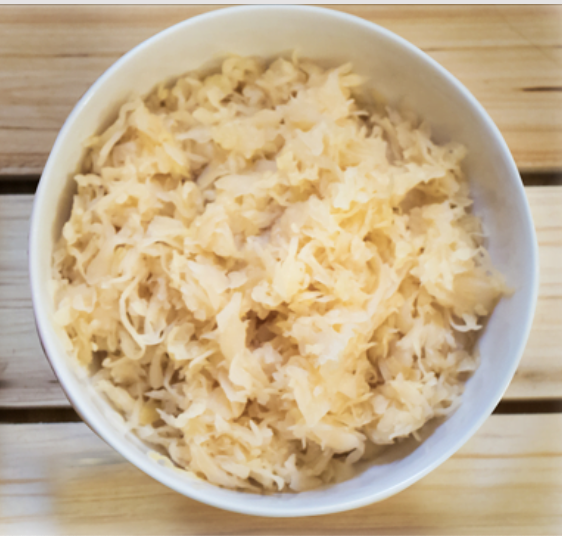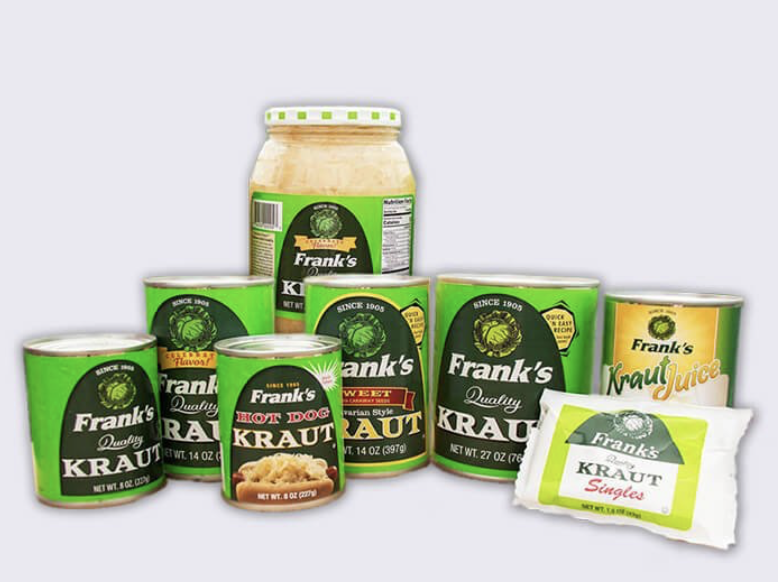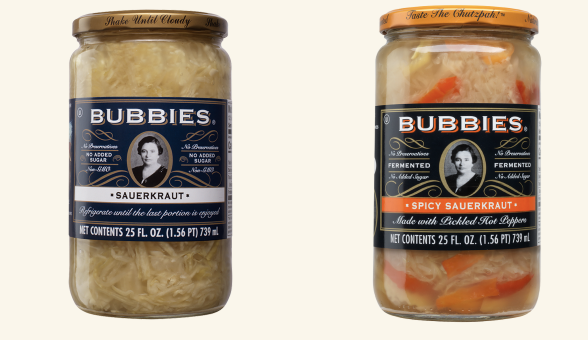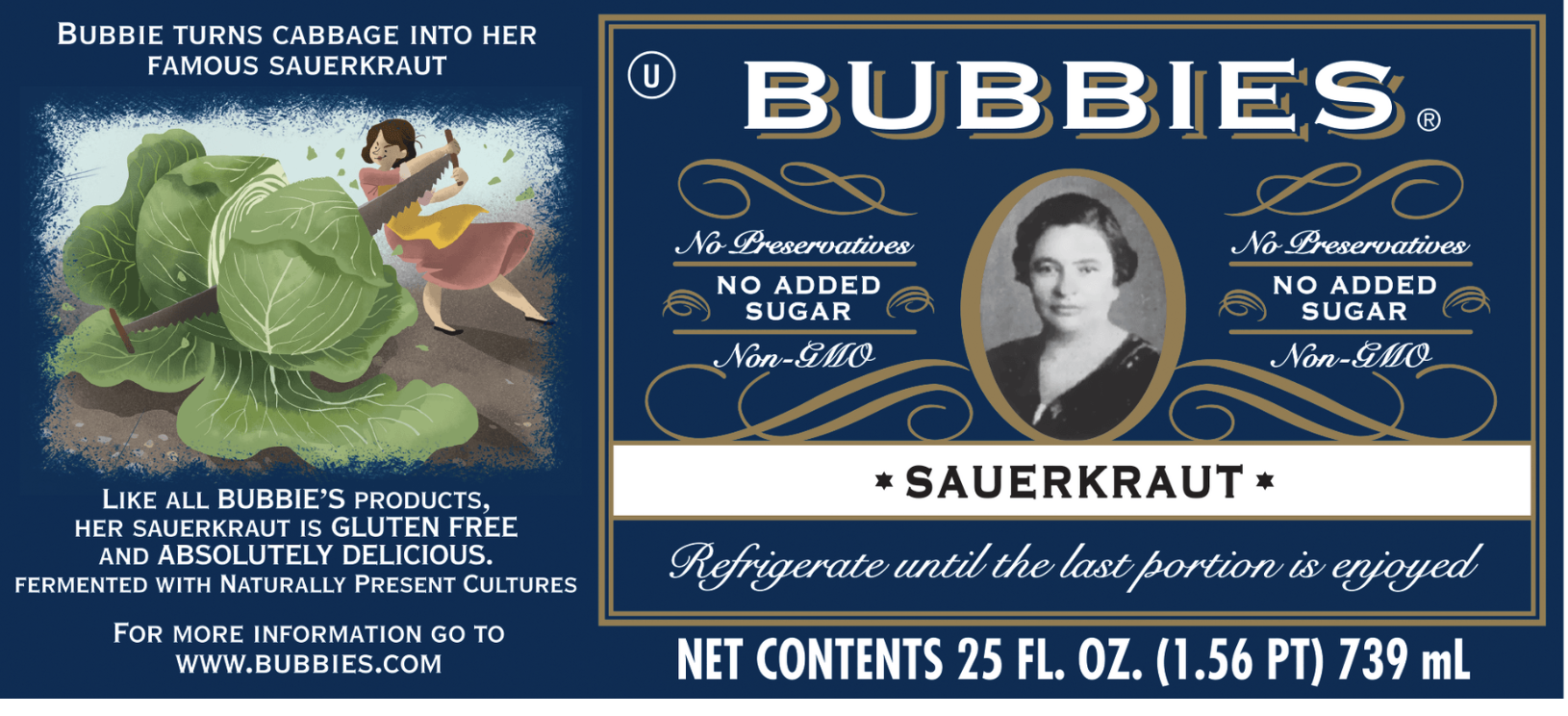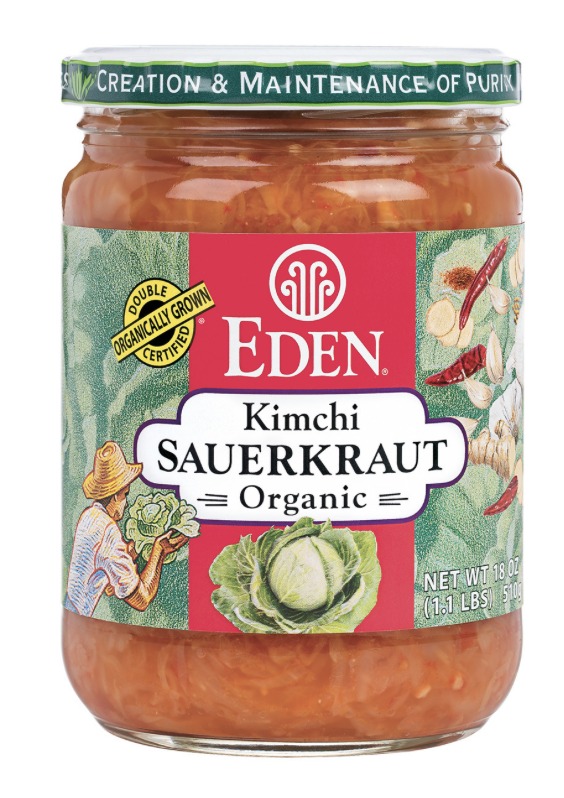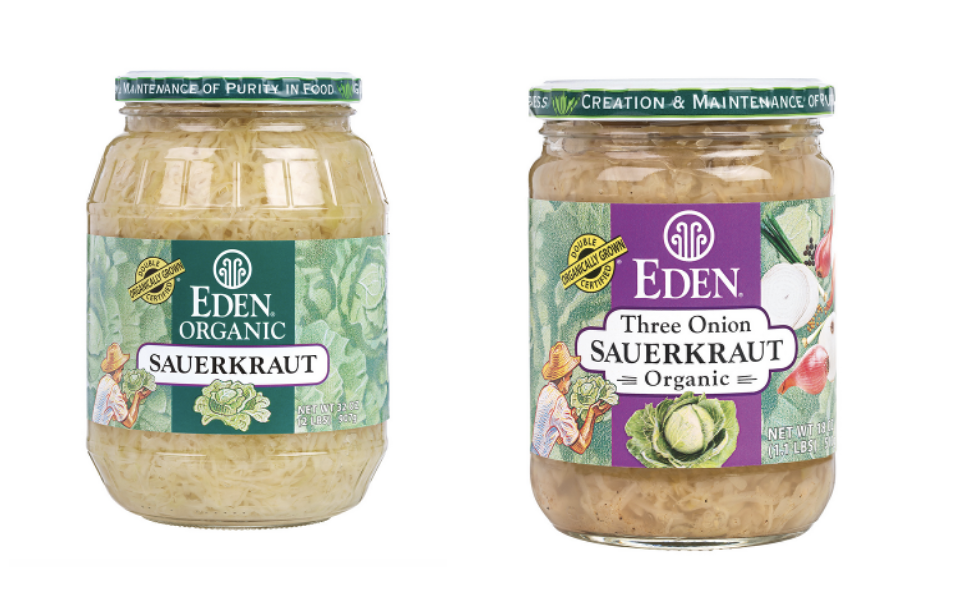Discover: Sauerkraut
By Chef David
The name sauerkraut comes from the German words sauer (sour) and kraut (cabbage) but it originated in China over 2,000 years ago where cabbage was fermented in rice wine. Fermentation preserves cabbage without refrigeration or canning. If you leave cabbage out it will be unedible after a few weeks but fermented it will last for months. Europeans were introduced to fermentation in the 16th century.
Fermenting cabbage makes it more digestible, enhancing the natural health benefits of cabbage. There are two methods used for sauerkraut, pasteurized and unpasteurized. Uncooked sauerkraut has lactic fermentation that contains probiotics, and live bacteria associated with improved gut health.
Fermented foods that contain live probiotics generally include the words ‘naturally fermented’ on the label. When you open the jar look for telltale bubbles in the liquid, which signal that live organisms are inside the jar. Whether or not it contains live bacteria, sauerkraut presents complex tastes, a distinctive pungent odor, and a strong, sour flavor that millions of people have come to love. Keep in mind that sodium levels can be high, be careful to check the label and eat in moderation.
We sampled a variety of sauerkrauts – Frank’s and sister brand SnowFloss Kraut certified by the OU, Bubbies certified by the OU, and Eden Kimchi Sauerkraut certified by the OK.
Superfood Sauerkraut
Sauerkraut has become a ‘superfood,’ low in calories with approximately 27 calories per cup, and high in fiber. It contains folate, vitamin B6, riboflavin, thiamin, and vitamin K. It provides one-third of the recommended vitamin C as well as iron, potassium, and magnesium. Which is why Captain Cook used it to prevent his crew from getting scurvy.
Fermentation – Creating Good Bacteria
Fermentation, an ancient process used to prevent food from spoiling, is a process where microorganisms like yeast and bacteria break down sugars into other products like organic acids, gases, or alcohol. The fermentation process produces good bacteria, and microorganisms, and may add nutrients. For example, vegetarians can get vitamin B12 which otherwise isn’t usually present in plant foods.
Research suggests the modern American diet, due to increased consumption of processed foods, antibiotics, and improved hygiene changed the number of microbes present creating an imbalance. The result is an increase in harmful bacteria, leading to health issues, including the weakening of the intestine walls. The human digestive tract contains 100 trillion bacteria and other microorganisms which aid in digestion. Consuming fermented products is believed to create a healthier gut.
Frank’s and SnowFloss Kraut
Frank’s Kraut & SnowFloss Kraut consolidated as the Fremont Company located in Fremont Ohio, was established in 1905 to become ‘one premier sauerkraut company.’ Every year, farmers in Northwest Ohio grow acres of green, luscious cabbage that will be brought in and made into kraut, starting with the finest cabbage seeds planted in mid-April with a mix of farm machinery and by hand. Hundreds of acres are planted for a late summer harvest. The entire process is carefully monitored for quality and consistency by master Kraut makers who personally tend to each stage.
The Fremont Company begins with tons of cabbage, which is hand cored, chopped, and cleaned before being shredded. The cabbage is mixed with salt and water and fermented for several weeks. They have been using the same process and recipe for over a century for traditional taste and quality, with just three simple ingredients: cabbage, salt, and water. It takes up to thirty days of fermentation to create a single batch.
Fremont Company makes three traditional flavors: Classic, Bavarian (sweetened with sugar and caraway), and Polish Style (with caraway seeds). Fermont krauts can be purchased in cans and glass bottles that are cooked before being packaged, while their bagged kraut is not heated before being packaged.
We sampled all three, the taste profiles were distinctive, and mouthwatering, with the slightly sweet Bavarian raising a few eyebrows at first but it won us over. They were all different and delicious but we preferred the traditional!
Use the store locator to find these krauts locally or order online.
Bubbies Fine Foods
Bubbies naturally fermented Sauerkraut is made from the crisp center leaves of the finest quality winter cabbages, which are shredded, salted, and fermented with naturally present cultures. This crunchy and flavorful sauerkraut is found in the refrigerated foods section. Bubbies products are naturally fermented, packing flavor along with probiotics, in their signature krauts.
We sampled the spicy sauerkraut and found it packed a punch, that kept us reaching for more. The chutzpadik flavor lets this kraut holds its own with meat, providing a clean flavor that was mouthwatering, flavorful, and maybe a bit sharp for the more delicate pallets, but our tasters enjoyed it. Bubbies products include pickles, horseradish, and relish all high-quality fermented foods.
History of Bubbies
Bubbies Pickles was founded in San Francisco, CA in 1982 when Leigh Truex (a Bubbie herself) began selling her homemade, naturally fermented Kosher Dill Pickles at local stores and farmers’ markets.
In 1989, John and Kathy Gray, two former bankers with an entrepreneurial spirit and a love of fermented foods, purchased the budding Bubbies of San Francisco. Over their 33 years of ownership, the Gray family turned this small local pickle company into a household name with the picture of their Bubbie, Kathy Gray on the label. Bubbies recipes are all preservative-free, sugar-free, non-GMO, gluten-free, and Kosher certified. They are part of Fermented Food Holdings.
Use the store locator to find Bubbies at your local supermarket.
Kimchi Sauerkraut – Eden Foods
A midground between traditional sauerkraut and spicy is provided by Eden Foods, with their Kimchi Sauerkraut. This combines two ancient krauts, into an inspired dish, kicking up the old-world sauerkraut taste with the addition of traditional kimchi flavors. It is flavorful, not overpowering, colorful, and complex. Just one taste made our testers smile, whereas kimchi can be a bit over the top, Eden provided a more subtle taste profile.
Eden Foods makes their krauts using hand-harvested organic cabbage which is washed, cored, shredded (this was the most finely chopped of the krauts we tested), and lactic acid fermented for at least six weeks. Artisan management of the fermentation cannot be computerized, perfection and consistency require the human touch. Eden Kimchi Sauerkraut is carefully tended, harvested, and fermented from field to jar by the Hirzel family. They have been making kraut since 1923 the way their family did in Switzerland, adding generations of caring know-how to produce the perfect sauerkraut, without additives of any kind, packed in a glass jar. They provide us with their distinctive homemade, old-world character and taste.
Once the fermentation is complete, an organic kimchi herb/spice medley is added, red bell peppers, onions, garlic, ginger root, cayenne pepper, yellow mustard seed, and chili pepper to impart a sparkling kimchi kick and red color.
The introduction of a range of tastes, and spices provided by Eden Foods lifts and shifts sauerkraut offering a bolder pronounced taste profile, a reinvention of a classic. They offer more traditional krauts, in their sauerkraut and three onion sauerkraut. Try them to find the flavor profile that matches your taste preference and compliments your meal.
Eden Foods
Eden Foods is a natural foods company that began in southern Michigan in 1968. It began as a cooperative where members searched for farmers to grow food using organic methods. Then it morphed into a natural food store offering whole grains, beans, soy foods, and cereals, later expanding to include a cafeteria, bakery, and books. Eden Foods was ahead of its time, created as a place to find natural, organic, and macrobiotic food. In 1972 they opened their first warehouse and established relations with artisan Japanese growers. Eden Foods now has an extensive line of kosher foods, with over 340 products certified by the OK, available online.
Cabbage Gone Trendy
Sauerkraut, which to some might seem like only a topping for hotdogs is getting an elevated status thanks to its link to probiotics, and gut health. Fermentation changes the taste and texture of this green leafy vegetable, making it a BBQ favorite. While cabbage may look like lettuce, it belongs to the Brassica genus of vegetables, which includes broccoli, radishes, and brussel sprouts. It is full of natural vitamins and minerals, and in addition to being high in fiber, it’s low in calories, whether you opt for pasteurized or unpasteurized, fermented cabbage.
Experiment by adding krauts to salads or sandwiches as a taste enhancer, and as always a welcome BBQ addition. Experiment with the different tastes of Frank’s, Bubbies, and Eden Foods.
Your gut will be glad that you did.

